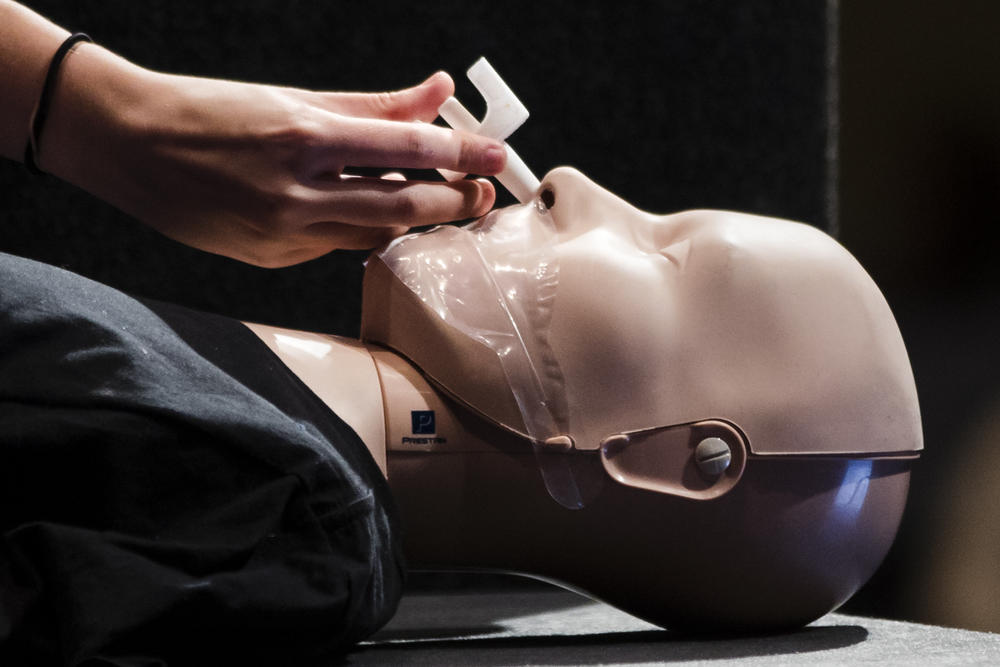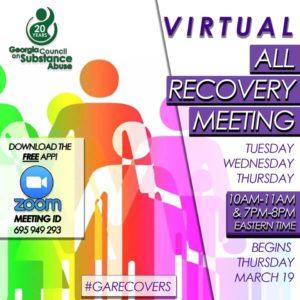Section Branding
Header Content
Overdoses Are Surging, Check In On Your Friends And Family, Experts Say
Primary Content
Social distancing and quarantining may help slow the spread of COVID-19, but the isolation is hurting those with opioid use disorder, addiction experts say. Social distancing and quarantining may help slow the spread of COVID-19, but the isolation is hurting those with opioid use disorder.
The number of suspected drug overdoses across the nation jumped 42% in May, according to the Overdose Detection Mapping Application Program, a federal initiative that collects data from ambulance teams, hospitals and police.
The spike follows smaller jumps of 18% in March and 29% in April. That qualifies the recent overdoses as a syndemic — when two or more afflictions, interacting synergistically, contribute to excess burden of disease in a population, experts say. Or, what happens when society sees an addiction crisis amid a virus pandemic.
MORE: Increase In Suspected Drug Overdoses In Georgia Amid COVID-19
Opiant Pharmaceuticals CEO Dr. Roger Crystal developed Narcan nasal spray to reverse the effects of opioid overdose. Before it was approved in 2015 by the U. S. Food and Drug Administration, the drug was only given intravenously. Narcan can save a person who is actively dying during an overdose.
Now, the nasal option is critical for first responders with concerns about COVID-19.
“You can be at literally arm's length and administer it very, very quickly," Crystal said.
RELATED: Social Distancing Means People Who Need People Have A Tough Time Staying Sober
If your loved one is struggling with an opioid addiction, Crystal said it’s crucial to have access to the antidote, because the overdoses are increasing. The pandemic has made it even more complicated, because loved ones cannot as easily check in on friends and family due to people isolating in their homes.
That is why he said it is crucial to use Zoom and other video conferencing tools to communicate with those who might be struggling.
"If they're not responsive remotely, then it might be appropriate to call the emergency services," Crystal said, "knowing that someone who is high risk of an overdose and they're not responding to any contact."
In keeping with the national trend, Georgia has seen a jump in overdoses.
Jeff Breedlove with the Georgia Council on Substance Abuse said knowing how to use Narcan is so important that they've incorporated it into ongoing training.
"We encourage all first responders and law enforcement officials to carry it at all time," he said.
The chief of police in Marietta makes sure officers carry two doses of Narcan in each car, one for a potential victim and another in case the officer is exposed.
"That is the gold standard for law enforcement," Breedlove said.
Georgia's drug surveillance team outlined the rise in suspected drug overdoses in a June 19 memo that alerted its “partners to be vigilant about any unusual drug overdose activity” and that the department “needs your help to determine if an increase in drug overdoses is truly occurring.”
Friends and family can help by continuing to check in with loved ones even if that means doing so virtually.
"We do virtual all recovery meetings – twice a day every day we provide opportunities for those struggling or those worried about those who are at risk," Breedlove said. "A simple text can save a life."



